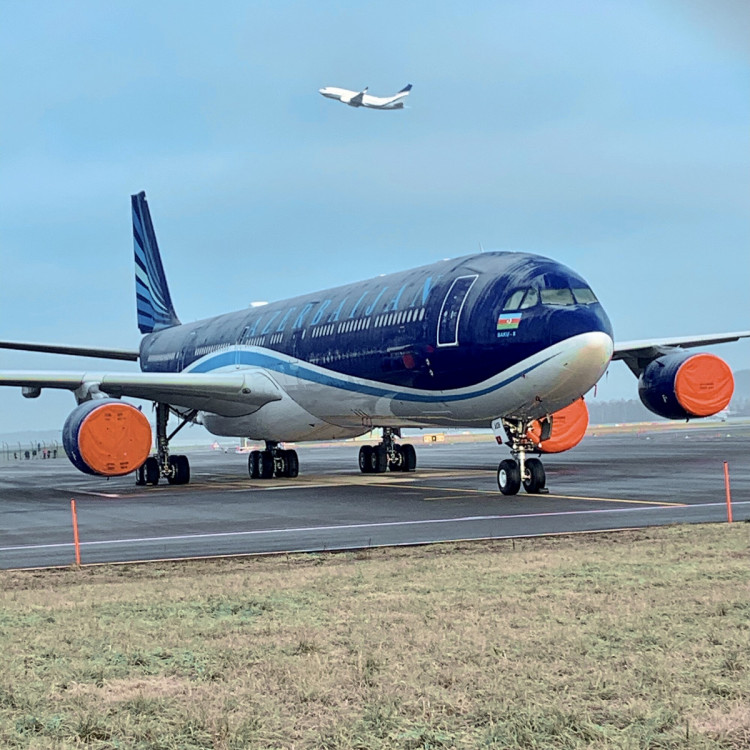The fatal crash of an Azerbaijan Airlines plane in Kazakhstan on Wednesday, which claimed 38 lives and injured 29 others, is now under international scrutiny as preliminary indications suggest the aircraft may have been struck by a Russian anti-aircraft system. The Embraer 190, en route from Baku, Azerbaijan, to Grozny, Russia, was diverted to Aktau in Kazakhstan due to weather issues but crashed approximately two miles from the airport during an attempted landing.
A U.S. official, speaking anonymously to ABC News, revealed early signs that Russian air defense systems could have played a role in the tragedy, adding that confirmation would underscore "Russian recklessness" amid its ongoing invasion of Ukraine. Investigators from Azerbaijan, Kazakhstan, and Russia are collaborating to determine the exact cause of the crash, while the Kremlin urged against speculation. "It would be wrong to make hypotheses before investigators make their verdict," said Kremlin spokesperson Dmitry Peskov.
The aircraft was carrying 64 passengers and five crew members, with victims spanning several nationalities, including 37 Azerbaijani citizens, 16 Russians, six Kazakhs, and three Kyrgyz nationals. Among the 29 survivors, many sustained severe injuries, including two children, who remain hospitalized.
Eyewitness accounts and circulating cellphone footage have added to the intrigue. Videos captured the aircraft's steep descent, ending in a fiery explosion upon impact. Photos of the wreckage showed extensive damage, including the tail section, prompting analysts to suggest it bore signs of a surface-to-air missile strike.
Yan Matveyev, an independent Russian military expert, pointed out that the visible damage to the tail appeared consistent with shrapnel from a missile, such as those fired by the Pantsir-S1 air defense system. Similarly, Gerard Legauffre, a former expert with France's BEA air accident investigation agency, remarked that the wreckage displayed "a lot of shrapnel," reminiscent of the Malaysia Airlines Flight MH17 tragedy in 2014, when a Russian missile downed a passenger jet over eastern Ukraine.
Osprey Flight Solutions, a UK-based aviation security firm, issued a stark warning, asserting that "the Azerbaijan Airlines flight was likely shot down by a Russian military air-defense system." Andrew Nicholson, CEO of Osprey, underscored the risks, noting that his firm had issued over 200 alerts regarding drone attacks and air defense activity in Russia during the war in Ukraine. "It is painful to know that despite our efforts, lives were lost in a way that could have been avoided," Nicholson said.
Russia's civil aviation authority, Rosaviatsia, offered an alternative theory, stating that the pilots diverted to Aktau after a bird strike caused an emergency. However, the possibility of a bird strike causing such extensive damage has been met with skepticism among experts.
Azerbaijani President Ilham Aliyev acknowledged the uncertainties surrounding the crash. "The plane changed its course between Baku and Grozny due to worsening weather conditions and headed to Aktau airport, where it crashed upon landing," he said during a press conference. Azerbaijan has launched a criminal investigation into the crash, with officials exploring all possibilities, including mechanical failure, pilot error, and external factors.
Kazakhstan's parliamentary speaker, Maulen Ashimbayev, cautioned against drawing premature conclusions based on fragmented evidence. "The allegations of air defense fire are unfounded and unethical," he said.
As Azerbaijan observed a national day of mourning, flags were lowered, and a moment of silence was observed across the country. Embraer, the manufacturer of the Embraer 190 aircraft, pledged full cooperation with investigators. "We remain fully committed to supporting the relevant authorities," the company said in a statement.




